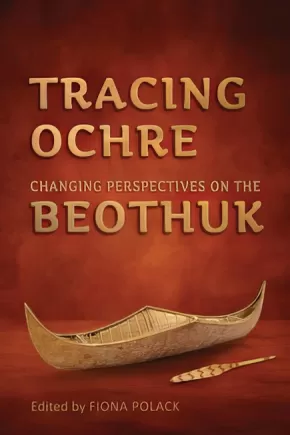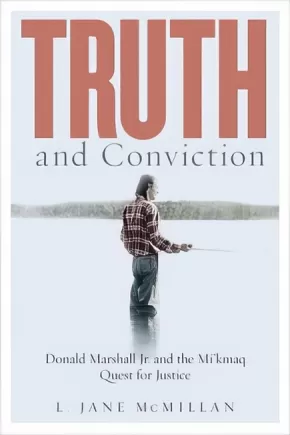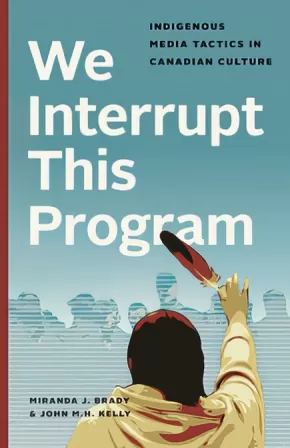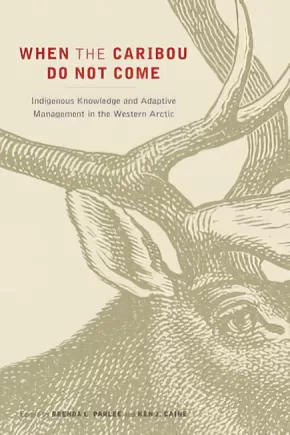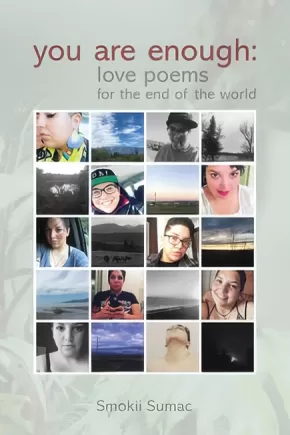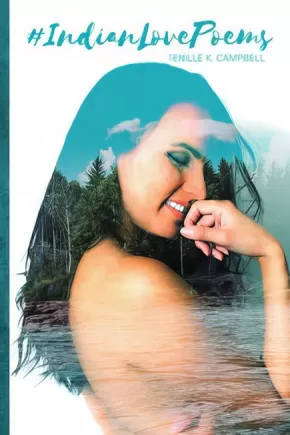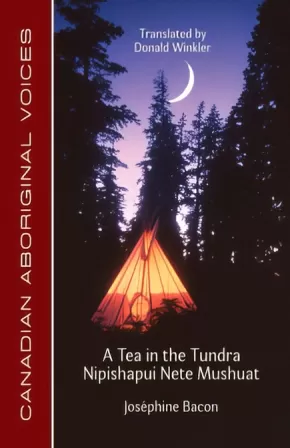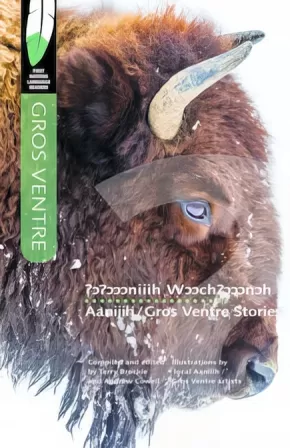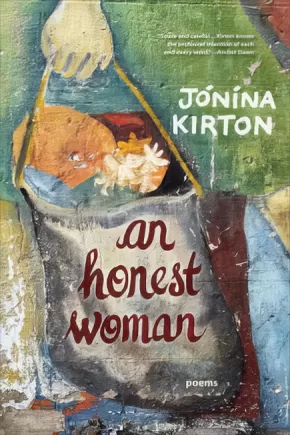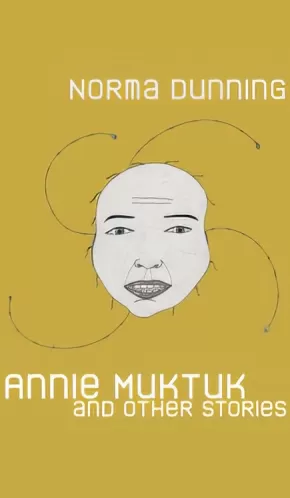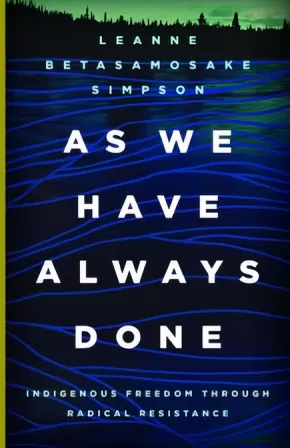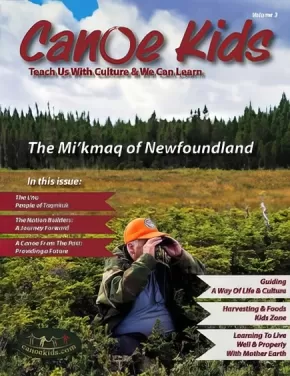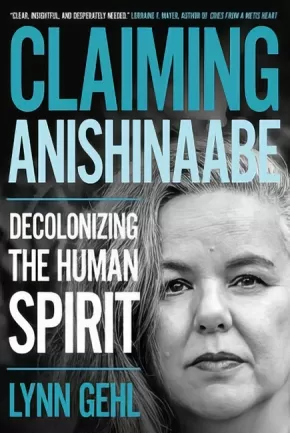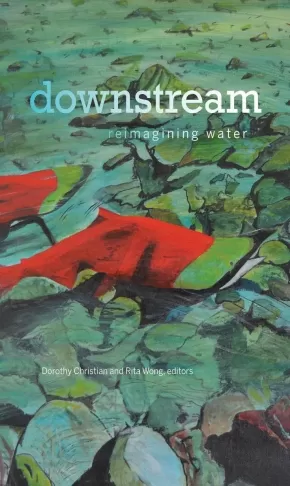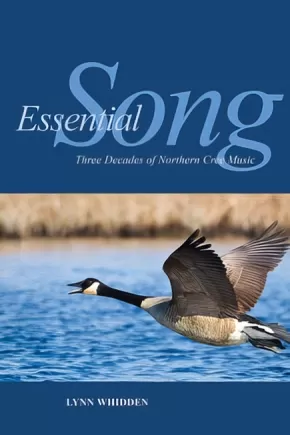
Indigenous Studies
781
-
795
of
1030 Results;
Sort By
Go To
of 69
Tracing Ochre: Changing Perspectives on the Beothuk
$46.95
Editors:
Format:
Paperback
Text Content Territories:
Indigenous Canadian; First Nations; Beothuk;
Grade Levels: University/College;
ISBN / Barcode: 9781442628427
Synopsis:
Synopsis:
The supposed extinction of the Indigenous Beothuk people of Newfoundland in the early nineteenth century is a foundational moment in Canadian history. Increasingly under scrutiny, non-Indigenous perceptions of the Beothuk have had especially dire and far-reaching ramifications for contemporary Indigenous people in Newfoundland and Labrador.
Tracing Ochre reassesses popular beliefs about the Beothuk. Placing the group in global context, Fiona Polack and a diverse collection of contributors juxtapose the history of the Beothuk with the experiences of other Indigenous peoples outside of Canada, including those living in former British colonies as diverse as Tasmania, South Africa, and the islands of the Caribbean. Featuring contributions of Indigenous and non-Indigenous thinkers from a wide range of scholarly and community backgrounds, Tracing Ochre aims to definitively shift established perceptions of a people who were among the first to confront European colonialism in North America.
Truth and Conviction: Donald Marshall Jr. and the Mi'kmaw Quest for Justice
$34.95
Format:
Hardcover
Text Content Territories:
Indigenous Canadian; First Nations; Mi'kmaq;
Grade Levels: University/College;
ISBN / Barcode: 9780774837484
Synopsis:
Synopsis:
The name “Donald Marshall Jr.” is synonymous with “wrongful conviction” and the fight for Indigenous rights in Canada. In Truth and Conviction, Jane McMillan – Marshall’s former partner, an acclaimed anthropologist, and an original defendant in the Supreme Court’s Marshall decision on Indigenous fishing rights – tells the story of how Marshall’s fight against injustice permeated Canadian legal consciousness and revitalized Indigenous law.
Marshall was destined to assume the role of hereditary chief of Mi’kmaq nation when, in 1971, at the age of seventeen, he was wrongly convicted of murder. He spent more than eleven years in jail before a royal commission exonerated him and exposed the entrenched racism underlying the terrible miscarriage of justice. Four years later, in 1993, he was charged with fishing eels without a licence. With the backing of Mi’kmaq chiefs and the Union of Nova Scotia Indians, he took the case all the way to the Supreme Court to vindicate Indigenous treaty rights in the landmark Marshall decision.
Marshall was only fifty-five when he died in 2009. His legacy lives on as Mi’kmaq continue to assert their rights and build justice programs grounded in customary laws and practices, key steps in the path to self-determination and reconciliation.
This book will appeal to anyone interested in the Donald Marshall story, Indigenous peoples encounters with the law, and social justice issues.
Reviews
"Jane McMillian has written an admirable, engaging, and formidable book about an Indigenous man’s quest for justice against the systemic injustices of Canada." -
Additional Information
288 pages | 6.00" x 9.00" | 10 black and white photographs
We Interrupt This Program: Indigenous Media Tactics in Canadian Culture
$29.95
Format:
Paperback
Text Content Territories:
Indigenous Canadian;
Grade Levels: University/College;
ISBN / Barcode: 9780774835091
Synopsis:
Synopsis:
We Interrupt This Program tells the story of how Indigenous people are using media tactics in the realms of art, film, television, and journalism to rewrite Canada’s national narratives from Indigenous perspectives.
Miranda Brady and John Kelly showcase the diversity of these interventions by offering personal accounts and reflections on key moments – witnessing survivor testimonies at the Truth and Reconciliation Commission, attending the opening night of the ImagineNative Film + Media Festival, and discussing representations of Indigenous people with artists such as Kent Monkman and Dana Claxton and with CBC journalist Duncan McCue. These scene-setting moments bring to life their argument that media tactics, as articulations of Indigenous sovereignty, have the power not only to effect change from within Canadian institutions and through established mediums but also to spark new forms of political and cultural expression in Indigenous communities and among Indigenous youth.
Theoretically sophisticated and eminently readable, We Interrupt This Program reveals how seemingly unrelated acts by Indigenous activists across Canada are decolonizing our cultural institutions from within, one intervention at a time.
This book will appeal to wide spectrum of readers – from students and scholars in communications and media studies to those with a general interest in Canadian art, culture, history, journalism, anthropology, and Indigenous studies.
Reviews
"...the book chronicles the breadth of media interventions employed by Aboriginal media creators, foregrounding Indigenous worldviews, agency and resilience while challenging colonial myths. It is a vital resource for anyone seeking to understand Indigenous cultural expression in Canada in the digital age." — Brad Clark, Journalism and Broadcast Media Studies at Mount Royal University, Canadin Journal of Native Studies, Vol. 38, No. 1, January 2018
"[We Interrupt this Program] provides an analytical perspective to help readers reflect on what types of new interruptions may be brewing – or to plan the interventions themselves." — Greg Macdougall, Briarpatch Magazine, June 2018
Educator Information
Table of Contents
Introduction: Indigenous Media Tactics
1 Media Practices and Subversions: Survivor Testimonials in the Truth and Reconciliation Commission
2 IsumaTV’s “Testimony by Isuma”: Online Expressions of Inuit Culture and Assimilation
3 Redfacing, Remediation, and Other Indigenous ArtTactics: Challenging Cultural Institutions
4 imagineNATIVE as Industry Intervention: Supporting and Growing Indigenous Media Makers
5 Reporting News in Indigenous Communities: A Conversation with Journalist Duncan McCue on Respect and Relationality
Conclusion: Media Tactics Old and New
Notes; Works Cited; Index
Additional Information
220 pages | 5.50" x 8.50" | 14 B&W Photos
When the Caribou Do Not Come: Indigenous Knowledge and Adaptive Management in the Western Arctic
$32.95
Editors:
Format:
Paperback
Text Content Territories:
Indigenous Canadian; Inuit; Inuvialuit (Mackenzie Inuit); First Nations; Dene; North Slavey (Sahtu); Dinjii Zhuh (Gwich'in);
Grade Levels: University/College;
ISBN / Barcode: 9780774831192
Synopsis:
Synopsis:
In the 1990s, news stories began to circulate about declining caribou populations in the North. Were caribou the canary in the coal mine for climate change, or did declining numbers reflect overharvesting by Indigenous hunters or failed attempts at scientific wildlife management?
Grounded in community-based research in northern Canada, a region in the forefront of co-management efforts, these collected stories and essays bring to the fore the insights of the Inuvialuit, Gwich’in, and Sahtú, people for whom caribou stewardship has been a way of life for centuries. Anthropologists, historians, political scientists, ecologists, and sociologists join forces with elders and community leaders to discuss four themes: the cultural significance of caribou, caribou ecology, food security, and caribou management. Together, they bring to light past challenges and explore new opportunities for respecting northern communities, cultures, and economies and for refocusing caribou management on the knowledge, practices, and beliefs of northern Indigenous peoples.
Ultimately, When the Caribou Do Not Come drives home the important role that Indigenous knowledge must play in understanding, and coping with, our changing Arctic ecosystems and in building resilient, adaptive communities.
This collection is essential reading for multiple groups and interested parties – scientists, scholars, graduate students, wildlife managers, and members and leaders of Indigenous communities.
Reviews
"This book shines a light on the diverse peoples who have come together to share their knowledge and build a new relationship in order to address the very real concern we all have for the wellness of caribou." - Stephen Kakfwi, former premier of the Northwest Territories
"This is a fascinating volume with unusual breadth. Barren-ground caribou are one of the North’s most important biological and cultural resources. When the Caribou Do Not Come blends the perspectives of Indigenous and academic specialists and allows them to retain their own voice. The understandings of human-caribou interaction expressed in this book will lead researchers, Indigenous and non-Indigenous users, and wildlife managers to reflect on current and future practices." -
Additional Information
280 pages | 6.00" x 9.00" | 15 figures, 12 tables, 6 photos, 3 maps
CONTENTS:
Foreword / Fikret Berkes
Introduction / Brenda Parlee and Ken Caine
Part 1: Counting Caribou
1 From Tuktoyaktuk – Place of Caribou / Frank Pokiak
2 The Past Facing Forward: History and Caribou Management in Northern Canada / John Sandlos
3 Recounting Caribou / Brenda Parlee
4 Beyond the Harvest Study / Brenda Parlee, Natalie Zimmer, and Peter Boxall
Part 2: Understanding Caribou
5 We Are the People of the Caribou / Morris Neyelle
6 Harvesting in Dene Territory: The Connection of Ɂepę́ (Caribou) to the Culture and Identity of the Shúhtagot’ı̨nę / Leon Andrew
7 Dene Youth Perspectives: Learning Skills on the Land / Roger McMillan
Part 3: Food Security
8 Time, Effort, Practice, and Patience / Anne Marie Jackson
9 The Wage Economy and Caribou Harvesting / Zoe Todd and Brenda Parlee
10 Caribou and the Politics of Sharing / Tobi Jeans Maracle, Glenna Tetlichi, Norma Kassi, and David Natcher
Part 4: Governance and Management
11 Recollections of Caribou Use and Management / Robert Charlie
12 Ways We Respect Caribou: A Comparison of Rules and Rules-in-Use in the Management of the Porcupine Caribou / Kristine Wray
13 Letting the Leaders Pass: Barriers to Using Traditional Ecological Knowledge in Co-management as the Basis of Formal Hunting Regulations / Elisabeth Padilla and Gary P. Kofinas
14 Linking the Kitchen Table and Boardroom Table: Women in Caribou Management / Brenda Parlee, Kristine Wray, and Zoe Todd
Index
you are enough: love poems for the end of the world
$15.00
Format:
Paperback
Text Content Territories:
Indigenous Canadian; First Nations; Ktunaxa (Kootenay);
ISBN / Barcode: 9781928120162
Synopsis:
Synopsis:
In his debut poetry collection you are enough: love poems for the end of the world, Smokii Sumac has curated a selection of works from two years of a near daily poetry practice. What began as a sort of daily online poetry journal using the hashtag #haikuaday, has since transformed into a brilliant collection of storytelling drawing upon Indigenous literary practice, and inspired by works like Billy Ray Belcourt's This Wound is a World, and Tenille Campbell's #IndianLovePoems.
The poems follow the haiku format, often stringing together three lines to tell a story. With sections dealing with recovery from addiction and depression, coming home through ceremony, and of course, as the title suggests, on falling in and out of love, Sumac brings the reader through two years of life as a Ktunaxa Two-Spirit person. This collection will move you as Sumac addresses the grief of being an Indigenous person in Canada, shares timely (and sometimes hilarious) musings on consent, sex, and gender, introduces readers to people and places he has loved and learned from, and through it all, helps us all come to know that we are enough, just as we are.
Awards
- 2019 Indigenous Voices Awards Winner for Published Poetry in English
Additional Information
108 pages | 5.50" x 8.50"
#IndianLovePoems
$17.95
Format:
Paperback
Text Content Territories:
Indigenous Canadian;
ISBN / Barcode: 9781927426999
Synopsis:
Synopsis:
Covering Indigenous adventures from Wahpole Island to Northern Saskatchewan to the coast of Vancouver, #IndianLovePoems is a poetry collection that delves into the humour and truths of love and lust within Indigenous communities. Sharing stories in search of The One, or even better, that One-Night-Stand, or the opening of boundaries -- can we say medicine wheel -- this collection fearlessly sheds light on the sharing and honesty that comes with discussions of men, women, sex, and relationships, using humour to chat about the complexities of race, culture and intent within relationships. From discovering your own John Smith to sharing sushi in bed, #IndianLovePoems will make you smile, shake your head, and remember your own stories about that special someone.
Reviews
"These are resolutely modern poems written for the great variety of women and LGBTQ2S people of today. They turn the stereotypes of the “Vanishing Indian” and “unchanging cultures” upside down with mentions of campus life, sexting, Tinder, and of course Twitter (the poems have non-serialized numbers with hashtags). There is power in Campbell’s creative use of imagery and everyday language. #IndianLovePoems is a must-read from a very exciting new voice who will undoubtedly become an established name." - Sylvie Vranckx, Canadian Literature: A Quarterly of Criticism and Review
Additional Information
96 pages | 6.00" x 9.00"
A Tea in the Tundra / Nipishapui Nete Mushuat
$16.95
Format:
Paperback
Text Content Territories:
Indigenous Canadian; First Nations; Innu (Montagnais-Naskapi);
Grade Levels: 12; University/College;
ISBN / Barcode: 9781772310351
Synopsis:
Synopsis:
In this bilingual English-Innu poetry collection, Joséphine Bacon challenges our traditional notions of culture and perception, landscape and wilderness, the limits of experience, and the nature of human being. With a surreal blend of emotions and memories, A Tea in the Tundra / Nipishapui Nete Mushuat portrays a complex and ever-shifting landscape of possibilities. The author passionately reveals a finely wrought sensibility, which elevates the subtle scenery of life's everyday events.
Educator & Series Information
This book is part of the Canadian Aboriginal Voices series.
Additional Information
96 pages | 5.50" x 8.50" | Translated by Donald Winkler
Aaniiih/Gros Ventre Stories
$24.95
Editors:
Format:
Paperback
Text Content Territories:
Indigenous American; Native American; Gros Ventres (Aaniiih);
ISBN / Barcode: 9780889774803
Synopsis:
Synopsis:
The first-ever collection of Anniiih/Gros Ventre narratives to be published in the Aaniiih/Gros Ventre language, this book contains traditional trickster tales and war stories. Some of these stories were collected by Alfred Kroeber in 1901, while others are contemporary, oral stories, told in the past few years.
As with the previous titles in the First Nations Language Readers series, Aaniiih/Gros Ventre Stories comes with a complete glossary and provides some grammar usage. Delightfully illustrated, each story is accompanied by an introduction to guide the reader through the material.
The Aaniiih/Gros Ventre people lived in the Saskatchewan area in the 1700s, before being driven south during the 1800s to the Milk River area in Montana, along the USA/Canada border.
Educator & Series Information
This book is published in the Aaniiih/Gros Ventre language. An English glossary is provided at the back of the book.
The Canadian Indigenous Books for Schools list recommends this resource for Grades 10-12 for these subjects: English Language Arts, Indigenous Language Studies, Language Studies.
Aaniiih/Gros Ventre Stories is part of the First Nations Language Readers series. With a mix of traditional and new stories, each First Nations Language Reader introduces an Indigenous language and demonstrates how each language is used today. The University of Regina Press’s long-term goal is to publish all 60+ Indigenous languages of Canada.
Additional Information
120 pages | 5.50" x 8.50" | Compiled and Edited by Terry Brockie and Andrew Cowell
An Honest Woman
$16.95
Format:
Paperback
Text Content Territories:
Indigenous Canadian;
ISBN / Barcode: 9781772011449
Synopsis:
Synopsis:
An Honest Woman by Jonina Kirton confronts us with beauty and ugliness in the wholesome riot that is sex, love, and marriage. From the perspective of a mixed-race woman, Kirton engages with Simone de Beauvoir and Donald Trump to unravel the norms of femininity and sexuality that continue to adhere today.
Kirton recalls her own upbringing, during which she was told to find a good husband who would “make an honest woman” out of her. Exploring the lives of many women, including her mother, her contemporaries, and well-known sex-crime stories such as the case of Elisabeth Fritzl, Kirton mines the personal to loosen the grip of patriarchal and colonial impositions.
An Honest Woman explores the many ways the female body is shaped by questions that have been too political to ask: What happens when a woman decides to take her sexuality into her own hands, dismissing cultural norms and the expectations of her parents? How is a young woman’s sexuality influenced when she is perceived as an “exotic” other? Can a woman reconnect with her Indigenous community by choosing Indigenous lovers?
Daring and tender in their honesty and wisdom, these poems challenge the perception of women’s bodies as glamorous and marketable commodities and imagine an embodied female experience that accommodates the role of creativity and a nurturing relationship with the land.
Reviews
“Jonina Kirton is courageously honest about her life experiences as a female of Indigenous and immigrant ancestry. Many poems resonate deeply, as we identify with her personal quest to figure out who she is, and the unacceptable things done to her. Her raw honesty is unsettling and uncomfortable, because it can be our truth too. Her poems depict devaluation and dehumanization, grieving, lessons learned. Her poems offer important insights as to why there are thousands of missing and murdered Indigenous women.” — Senator Lillian E. Dyck
“When writing from the voice of between, writer and reader have no place to hide. Assumptions and camouflage fall away. Murdered, missing, and violated women and girl voices have been silenced. The story lethally repeats. Kirton picks over how she was raised familially and culturally like a crime scene. Too, she affirms, ‘I have been here forever and I will rise again and again.’ Tough, eloquent, revelatory, these poems are the very ones we are desperately in need of.” — Betsy Warland, author of Oscar of Between: A Memoir of Identity and Ideas
“I’m sure people have been looking at me strangely every time I gasp, but I can’t glance away from the page for even a second to notice. Some of the poems end sharply, with a punch; some deliberately leave me searching for the next line; others show the repetition of heartbreaking cycles of violence and oppression, but offer a portrayal of resilience, too.” — All Lit Up!
Educator Information
This book would be useful for Women's Studies, Creative Writing, English Language Arts, Poetry, and English courses. Recommended for grades 11-12 and university-college students.
Please be advised, this book contains explicit sexual references and references to sexual and physical abuse.
Additional Information
104 pages | 6.00" x 9.00"
Annie Muktuk and Other Stories
$22.99
Format:
Paperback
Text Content Territories:
Indigenous Canadian; Inuit;
Grade Levels: University/College;
ISBN / Barcode: 9781772122978
Synopsis:
Synopsis:
I woke up with Moses Henry’s boot holding open my jaw and my right eye was looking into his gun barrel. I heard the slow words, “Take. It. Back.” I know one thing about Moses Henry; he means business when he means business. I took it back and for the last eight months I have not uttered Annie Mukluk’s name.
In strolls Annie Mukluk in all her mukiness glory. Tonight she has gone traditional. Her long black hair is wrapped in intu’dlit braids. Only my mom still does that. She’s got mukluks, real mukluks on and she’s wearing the old-style caribou parka. It must be something her grandma gave her. No one makes that anymore. She’s got the faint black eyeliner showing off those brown eyes and to top off her face she’s put pretend face tattooing on. We all know it’ll wash out tomorrow. — from "Annie Muktuk"
When Sedna feels the urge, she reaches out from the Land of the Dead to where Kakoot waits in hospital to depart from the Land of the Living. What ensues is a struggle for life and death and identity. In “Kakoot” and throughout this audacious collection of short stories, Norma Dunning makes the interplay between contemporary realities and experiences and Inuit cosmology seem deceptively easy. The stories are raucous and funny and resonate with raw honesty. Each eye-opening narrative twist in Annie Muktuk and Other Stories challenges readers’ perceptions of who Inuit people are.
Awards
- 2017-2018 Danuta Gleed Literary Award Winner
- 2018 INDIEFAB Book of the Year (Short Stories)
- 2018 Howard O'Hagan Award for Short Story
Reviews
"Dunning’s stories, nuanced and deeply felt, reach deep into the heart of what it means to be Inuit, into the sacred place where the songs of the north are still sung, visions are still seen, and the spirits still speak. From this place, it is possible to laugh at those who come to destroy. From this place, dignity is maintained and the connection to the turning of the seasons is unbroken. Together with grief for what has been lost, there is power and light in these stories." — Kristine Morris, Foreword Magazine, June 2017
"When I read the article, 'What inspired her was getting mad,' about the story behind Norma Dunning’s debut collection, Annie Mukluk and Other Stories, I was not surprised. Acts of justice and revenge factor throughout the book, propelling the stories so terrifically. Dunning wrote her stories in response to ethnographic representations of Inuit people that neglected to show them as actual people, and the result is a book that’s really extraordinary. Because her people are so real, people who laugh, and joke, and drink, and have sex (and they have a lot of sex)." — Kerry Clare, Pickle Me This, August 2017
"Although [Dunning] deals with serious contemporary realities for Inuit people, she manages to work in moments of humour that flesh out her characters, making them fully realized and complex.”— Matthew Stepanic, Where.ca, September 2017
"A successful short story takes us to unfamiliar places, and the 16 stories in this collection certainly fill that bill. It’s a journey deep into Inuit life, with tales of Inuk of all shapes, genders and ages. The title story is at turns funny, violent and cunning: Jimmy tries to convince best friend Moses to stay away from the glorious Annie Muktuk, an arnaluk (naughty woman, according to the glossary) who will cause him grief." — Sarah Murdoch, Toronto Star, November 2017
"This whole collection is fantastic, but the story with the bad trip is 'Husky', inspired by the life of trapper and HBC Factor "Husky" Harris whose visit to Winnipeg with his three Inuit wives, Tetuk, Alaq and Keenaq, is written about in history books. In the story, naturally, the group and their children make an impression at their hotel, and the racism of hotel staff leads to a fight that lands Husky in the hospital. The violence doesn't end there and the women are further victimized—but then they enact the most beautiful justice." — Kerry Clare, 49th Shelf, August 2017
"Inuk writer Norma Dunning’s debut collection passed under the radar of the big awards despite being the year’s best short fiction collection. The stories infuse Inuit myth with reality, explore the effects of colonialism, and delve into settler-writer portrayals of Inuit, all told with heart and humour that is infectious." — Michael Melgaard, National Post, December 2017
Additional Information
198 pages | 5.25" x 9.00"
As We Have Always Done: Indigenous Freedom Through Radical Resistance (1 in stock, in Reprint)
$26.99
Format:
Paperback
Text Content Territories:
Indigenous American; Indigenous Canadian;
Grade Levels: University/College;
ISBN / Barcode: 9781517903879
Synopsis:
Synopsis:
Across North America, Indigenous acts of resistance have in recent years opposed the removal of federal protections for forests and waterways in Indigenous lands, halted the expansion of tar sands extraction and the pipeline construction at Standing Rock, and demanded justice for murdered and missing Indigenous women. In As We Have Always Done, Leanne Betasamosake Simpson locates Indigenous political resurgence as a practice rooted in uniquely Indigenous theorizing, writing, organizing, and thinking.
Indigenous resistance is a radical rejection of contemporary colonialism focused around the refusal of the dispossession of both Indigenous bodies and land. Simpson makes clear that its goal can no longer be cultural resurgence as a mechanism for inclusion in a multicultural mosaic. Instead, she calls for unapologetic, place-based Indigenous alternatives to the destructive logics of the settler colonial state, including heteropatriarchy, white supremacy, and capitalist exploitation.
Awards
- Native American and Indigenous Studies Association's Best Subsequent Book 2017
Reviews
"This is an astonishing work of Indigenous intellectualism and activism—by far the most provocative, defiant, visionary, and generous of Leanne Betasamosake Simpson's impressive corpus to date."—Daniel Heath Justice (Cherokee Nation), University of British Columbia
"I have learned more about this battered world from reading Leanne Betasamosake Simpson than from almost any writer alive today. A dazzlingly original thinker and an irresistible stylist, Simpson has gifted us with a field guide not to mere political resistance but to deep and holistic transformation. It arrives at the perfect time."—Naomi Klein, author of The Shock Doctrine and This Changes Everything
"A remarkable achievement that illuminates what is possible when we engage in the revolutionary act of indigenous self-love, As We Have Always Done asks the simple question, ‘What if no one sided with colonialism?’ The many possible answers to that question are reflected in Leanne Betasamosake Simpson’s beautifully written book in which she kindly challenges indigenous people to reclaim their lives and bodies from the settler colonial state."—Sarah Deer (Muscogee [Creek] Nation), author of The Beginning and End of Rape
"Incisive. Unmitigated. Inspiring. Simpson gives no quarter to colonialism. No quarter to a nasty Western narrative. She provides a pure, Indigenous lens—a lens that the white man tried to kill and bury. This book is a reminder that they failed in that rotten endeavor. It belongs on every Canadian bookshelf. On every American coffee table. Simpson's words are an affirmation of Indigenous resilience and resolve."—Simon Moya-Smith (Lakota and Chicano), culture editor at Indian Country Media Network
"Leanne Betasamosake Simpson confronts colonialism from the perspective of indigenous nationhood, but goes beyond arguing for changes in politics, writing in a way that enacts changes in our thinking about politics."—Indian Country Today
"While her intended audience is other Indigenous peoples, I think non-Indigenous Canadians will find it inspiring as they take up her challenge of decolonization."—Watershed Sentinel
"As We Have Always Done is an in-depth look into indigenous resistance and what is possible when that resistance embraces indigenous culture. It gives us a glimmer of hope. Hope that there is another way to live. That we can forge relationships, be with each other, and live for much more than what neo-liberal capitalism tells us life is about."—The Collective
"This book will not only offer the Indigenous community much courage, but it will also open the eyes of many non-indigenous people. We have here not just a description of a state of affairs, but also a practical guide. A very important, successful publication."—Amerindian Research
"The book is essential for anyone studying any aspect of Indigenous decolonization, politics, law, and settler colonialism, and signals a vital shift away from current neoliberal discussions and policies of indigenization and reconciliation in order to rebuild and recover indigenous nationhoods."—Transmotion
Additional Information
320 pages | 5.50" x 8.50" | Paperback
Canoe Kids Volume 3: The Mi'kmaq of Newfoundland
$22.95
Format:
Paperback
Text Content Territories:
Indigenous Canadian; First Nations; Mi'kmaq;
ISBN / Barcode: 9781926852102
Synopsis:
Synopsis:
Canoe Kids Vol. 3 The Mi'kmaq of Newfoundland (Ktaqamkuk) is the third issue of a 24 edition series designed as family books for kids all ages. This eight to ten year project will see the Canoe Kids Team embed with 24 Peoples. The mandate for the full-colour book (150+ full colour high res photographs) is Exploring Indigenous Cultures through Authentic Indigenous Voices. The publication balances culture, equity and the environment in a beautiful mix that reminds the reader of the pictorial quality of National Geographic with a more in depth editorial content.
This third issue (in a series of 24) focuses on the Mi'kmaq of the Newfoundland and north Atlantic coast. In 150 pages the reader is introduced to the Mi'kmaq People who kindly assisted the Canoe Kids staff by allowing access to their traditional territory. Canoe Kids acknowledges the generosity of the Council of Flat Bay and Conn River.
Educator Information
Each edition follows a common theme and features:
1: Compelling and beautiful pictorials that draw you into the stories and place of the featured community
2: The story of the vessel used by the featured Peoples
3: Art and Food
4: A Kids Zone
5: Resources for kids, parents and educators
6: Stories by and of the featured Peoples in each edition
7: Extraordinary pictures of the lives, land and waters of the featured Peoples
The materials are equal parts cultural and environmental. The latter is a natural offshoot of the former as Indigenous cultures are wrapped around and through the lands and water and sky both spiritually and from a harvesting and gathering perspective. Indigenous Peoples have long been the caretakers of Mother Earth and we can all learn from these experts whose message is perhaps more relevant today than ever.
Indigenous communities have always included the little ones in their circles and talk and teach to them in the same way they talk and teach to young adults and adults. Canoe Kids decided to follow that inclusive way of life for the layout of each book. Rather than create editions for different age groups, Canoe Kids decided to have one book for all ages.
K through 3 use Canoe Kids to read beautiful and ancient stories. There is beautiful original art to explore and a Kids Zone with puzzles, word searches, colouring, cutouts and more. Mid grades use the materials to study the culture, food and wildlife of the featured cultures. Grades 8 through 12 use stories that are more in depth from Dr. David Suzuki about the environment and there are discussion articles about living well and properly with Mother Nature as well as articles about the history and geography of the featured People.
Additional Information
150 pages | 8.50" x 11.00"
Claiming Anishinaabe: Decolonizing the Human Spirit
$24.95
Format:
Paperback
Text Content Territories:
Indigenous Canadian; First Nations; Anishinaabeg;
Grade Levels: 12; University/College;
ISBN / Barcode: 9780889774919
Synopsis:
Synopsis:
Denied her Indigenous status, Lynn Gehl has been fighting her entire life to reclaim mino-pimadiziwin--the good life. Exploring Anishinaabeg philosophy and Anishinaabeg conceptions of truth, Gehl shows how she came to locate her spirit and decolonize her identity, thereby becoming, in her words, "fully human." Gehl also provides a harsh critique of Canada and takes on important anti-colonial battles, including sex discrimination in the Indian Act and the destruction of sacred places.
Reviews
Gehl is at the cutting edge with her concepts and ideas... She is on a journey and documents it well. — Lorelei Anne Lambert, author of Research for Indigenous Survival
Clear, insightful, and desperately needed... — Lorraine F. Mayer, author of Cries from a Métis Heart
The discussion of the heart and mind knowledge, as well as the discussion on the Anishinaabeg Clan System of Governance, [are] major contributions to the research. — Marlyn Bennett, co-editor of Pushing the Margins
"Throughout Claiming Anishinaabe, the conversation remains rooted in the destructive effects of oppressive power on the human spirit, and an insistence that both knowledge and spirituality are key in reclaiming one’s sense of self." — Quill & Quire
Educator Information
This book would be useful for the following subject areas or courses: Indigenous Studies, Canadian History (Post-Confederation), Social Science, Autobiography/Biography Studies, Spirituality, and Law.
Additional Information
176 pages | 5.50" x 8.50" | Includes line drawings
downstream: reimagining water
$36.99
Format:
Paperback
Text Content Territories:
Indigenous Canadian;
ISBN / Barcode: 9781771122139
Synopsis:
Synopsis:
downstream: reimagining water brings together artists, writers, scientists, scholars, environmentalists, and activists who understand that our shared human need for clean water is crucial to building peace and good relationships with one another and the planet. This book explores the key roles that culture, arts, and the humanities play in supporting healthy water-based ecology and provides local, global, and Indigenous perspectives on water that help to guide our societies in a time of global warming. The contributions range from practical to visionary, and each of the four sections closes with a poem to encourage personal freedom along with collective care.
This book contributes to the formation of an intergenerational, culturally inclusive, participatory water ethic. Such an ethic arises from intellectual courage, spiritual responsibilities, practical knowledge, and deep appreciation for human dependence on water for a meaningful quality of life. downstream illuminates how water teaches us interdependence with other humans and living creatures, both near and far.
Reviews
"Downstream stakes out a bold and creative claim to collaborative and cross-cultural eco-spiritual-neo-traditional knowing and, with it, new approaches to policy and action. A timely read that lends depth and resonance to some of the material and voices [in other books on the subject]." — Heather Menzies, Literary Review of Canada, June 2017
"This rich collection brings together the work of artists, writers, scientists, scholars, environmentalists, and activists, all focusing on the looming global water crisis. ... Writing styles vary from piece to piece throughout the book—poetic, personal, journalistic, and academic—but the shifts between each are well worth navigating for any reader interested in human futures on Earth."— Publishers Weekly, August 2017
"This collection of works successfully expands our knowledge of and experience with water by merging natural science, social science, arts, and humanities approaches to water. It offers new, innovative, and engaging ways to think about and experience water, especially as it relates to life and vitality."— Sara Beth Keough, American Review of Canadian Studies, November -0001
Educator Information
This collection of essays is useful for these course/subject areas or topics: Language Arts & Disciplines; Creative Writing; Indigenous Studies; Poetry; Environmental Studies; Environmental Humanities.
Table of Contents
Introduction: Re-storying Waters, Re-storying Relations / Rita Wong and Dorothy Christian
Part I: Contexts for Knowing and Unknowing Water
1. Planetary Distress Signals / Alanna Mitchell
2. Water / Lee Maracle
3. Interweaving Water: The Incremental Transformation of Sovereign Knowledge into Collaborative Knowledge / Michael D. Blackstock
4. Water and Knowledge / Astrida Neimanis
5. Excerpts from “a child’s fable” / Baco Ohama
Part II: Water Testimonies: Witness, Worry, and Work
6. Water: The First Foundation of Life / Mona Polacca
7. From Our Homelands to the Tar Sands / Melina Laboucan Massimo
8. Keepers of the Water: Nishnaabe-kwewag Speaking for the Water / Renee Elizabeth Mzinegiizhigo-kwe Bedard
9. Water Walk Pedagogy / Violet Caibaiosai
10. A Response to Pascua Lama / Cecilia Vicuna
Part III: Shared Ethical and Embodied Practices
11. Moving with Water: Relationship and Responsibilities / Alannah Young Leon and Denise Marie Nadeau
12. Bodies of Water: Meaning in Movement / Seonagh Odhiambo Horne
13. Upstream: A Conversation with Water / Cathy Stubington
14. Ice Receding, Books Reseeding / Basia Irland
15. Tsunami Chant / Wang Ping
Part IV: A Respectful Co-existence in Common: Water Perspectives
16. Listening to the Elders at the Keepers of the Water Gathering /Radha D’Souza
17. Coastal Waters in Distress from Excessive Nutrients / Paul J. Harrison
18. Bodies of Water: Asian Canadians In/Action with Water /Janey Lew
19. Permeable Toronto: A Hydro-Eutopia / Janine MacLeod
20. Saturate/Dissolve: Water for Itself, Un-Settler Responsibilities, and Radical Humility / Larissa Lai
21. Bring Me Back / Janet Rogers
Additional Information
300 pages | 6.00" x 9.00"
Essential Song: Three Decades of Northern Cree Music
$39.99
Format:
Paperback
Text Content Territories:
Indigenous Canadian; First Nations; Cree (Nehiyawak);
Grade Levels: University/College;
ISBN / Barcode: 9781554586134
Synopsis:
Synopsis:
Essential Song: Three Decades of Northern Cree Music, a study of subarctic Cree hunting songs, is the first detailed ethnomusicology of the northern Cree of Quebec and Manitoba. The result of more than two decades spent in the North learning from the Cree, Lynn Whidden’s account discusses the tradition of the hunting songs, their meanings and origins, and their importance to the hunt. She also examines women’s songs, and traces the impact of social change—including the introduction of hymns, Gospel tunes, and country music—on the song traditions of these communities.
The book also explores the introduction of powwow song into the subarctic and the Crees struggle to maintain their Aboriginal heritage—to find a kind of song that, like the hunting songs, can serve as a spiritual guide and force.
Including profiles of the hunters and their songs and accompanied (online) by original audio tracks of more than fifty Cree hunting songs, Essential Song makes an important contribution to ethnomusicology, social history, and Aboriginal studies.
Awards
- ForeWord Magazine Book of the Year Award, Bronze Pize, Music Category
Educator Information
Audio files available on Soundcloud: https://soundcloud.com/user-276681310/sets/essential-song-three-decades.
Additional Information
192 pages | 6.00" x 9.00"
Sort By
Go To
of 69

